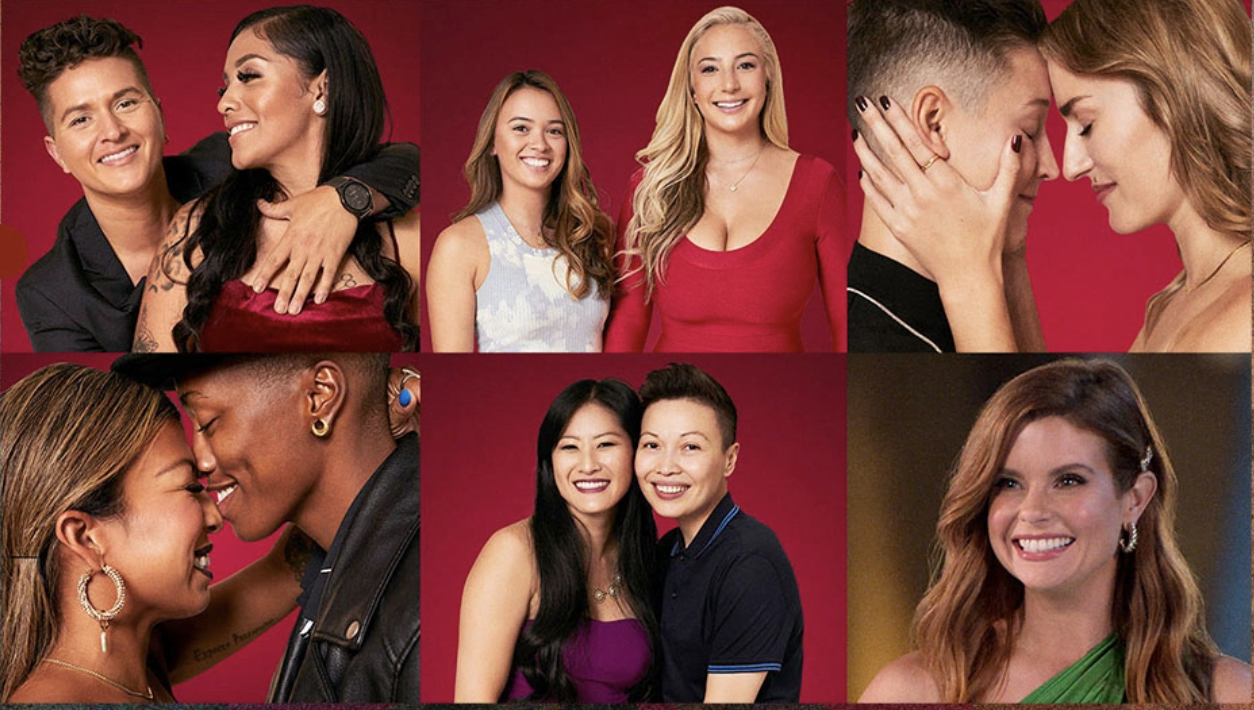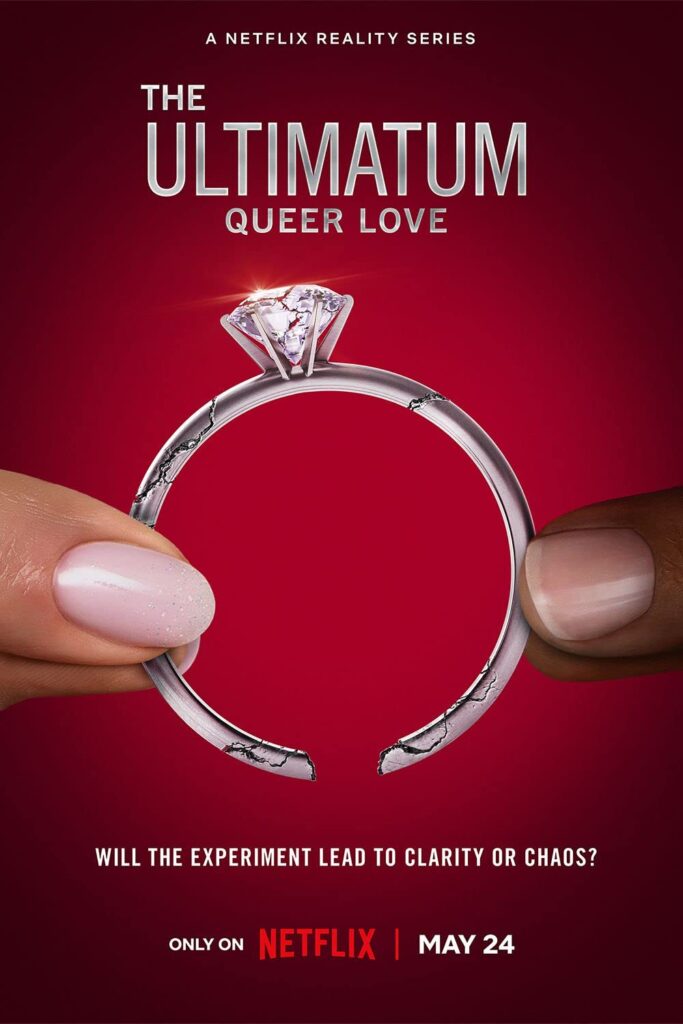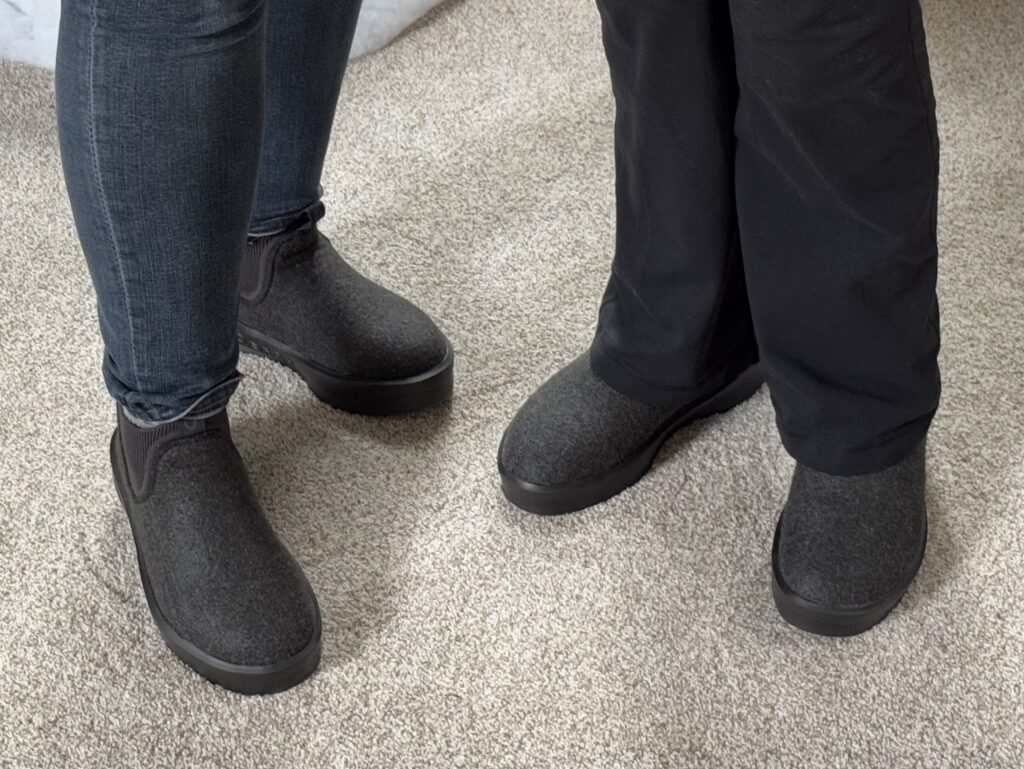Are you a fan of dating reality shows?
Bachelor-esque dating reality shows are ubiquitous these days. I used to pride myself on the fact that I haven’t watched any of the current crop.
In fact, the only dating reality shows I’ve ever watched were sort of ridiculous, long-ago ones: Rock of Love with Bret Michaels, A Shot at Love With Tila Tequila and Rock of Love’s spinoff, Daisy of Love. All three were wacky, over the top and entertaining back in the early 2000s.
I don’t enjoy reality TV all that much in general; I prefer beautifully written and acted stories. Ironically, reality TV usually feels too fake to me.
But I have to admit that I recently stumbled into watching this year’s The Ultimatum: Queer Love and found it undeniably enjoyable. The show follows five lesbian couples who disagree about their future together. In each couple, one person wants to get engaged and has issued an ultimatum; commit to me or we’re through.
I found this premise interesting because I’ve had several heartbroken friends who ended straight relationships because the guys weren’t ready for marriage or kids. It makes sense that this dichotomy would happen in queer relationships, too, and it’s immediately relatable. It’s probably also worth noting that ultimatums in relationships are generally not a recipe for success.
The most significant difference between this show and typical dating shows is that the couples on Ultimatum: Queer Love were all lesbian or nonbinary. There were no men at all on the show – and is it bad to admit that I really didn’t miss them? Guys on dating reality shows tend to be such cringey, one-dimensional bros.
Instead, the diverse femme, masc and nonbinary folks on Queer Love brought so many fresh perspectives and voices to the table. It was honestly refreshing. And yet, still delightfully overdramatic at times.
Another difference between this and many dating shows is that Queer Love is focused specifically on marriage. Each couple came to the show with one person wanting marriage. The show is designed to show each person what life would be like married to someone else, and then what life would be like married to their original partner.
The biggest drama point of the show is that each of the women and nonbinary folks selected a new partner with whom to live for three weeks in a “practice marriage” experience. At the end of the show, the original couples got back together to find out if they’d changed their minds about marriage or not. Queue the drama!
Z and I watched this show together and we both had similar favorites and anti-favorites. We both really liked Lexi and Mal right from the start. We didn’t particularly like Vanessa, who was clearly set up to be the show’s villain. And, we also liked Xander a lot.
Side note: for parents of LGBTQ+ kids, I do feel there are some good things here, like visibility and queer voices, but there’s also quite a bit of adult humor, language and actual (gratuitous and unnecessary) sexy moments, so it’s probably best for mature teenage kiddos and up.
As the show progressed, I found myself realizing that it actually shed some light on a few things for me. For example, the women and nonbinary individuals from each couple who were passionate about getting engaged or married had more in common with each other than they did with their commitment-resistant partners.
Truly, one of the most important aspects of any marriage is that both people want to be married and are committed to it. If one person feels coerced or dragged to the altar, things are likely not going to go well. Commitment and intent are so crucial for any married couple.
Ultimatatum: Queer Love actually got me thinking about arranged marriages, because the show did essentially “arrange” trial marriages for these couples.
Two of my dear friends had arranged marriages in real life and they have both worked out phenomenally well. While I realize that some “arranged” marriages in some places are actually forced, and that’s an entirely different (and reprehensible) situation, I’m talking about situations where young couples do have some choice and ultimately agree on their parents’ recommendation.
The statistics don’t lie: arranged marriages have a better chance at longevity than the average American marriage. And why is that? I believe it’s due to each couple’s commitment to the relationship and to staying married.
Anyway, I won’t spoil Ultimatum: Queer Love for anyone who hasn’t watched it. If you want to know who ends up with someone new and who ends up back with their original partner, you’ll have to head over to Netflix and give it a quick binge-watch.
If you do, be sure to let me know what you thought!




